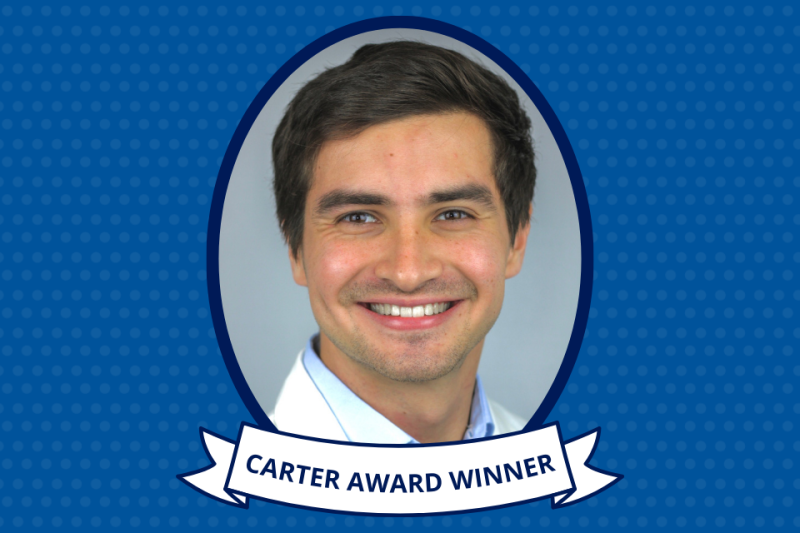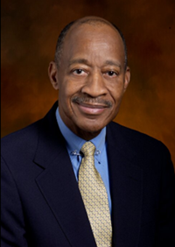
Andres Fuenmayor, MD, a second-year psychiatry resident, received this year’s James H. Carter, Sr. Community Service Award.
James H. Carter, Sr., MD, was the first Black full professor of psychiatry at Duke University Medical Center. The Carter Clinic, LLC, led by M. Ojinga Harrison, MD—an alumnus of the Duke internal medicine-psychiatry residency program and a close colleague of Carter—established this award in honor of Carter’s commitment to community service.
Carter’s Dedication to Serving the Underserved

Carter dedicated his career to serving the underserved. In addition to his faculty position at Duke, he played a critical role in building mental health services at Lincoln Community Health Center in Durham, the Alcohol Treatment Center in Raleigh, the Johnston County Mental Health Center and the North Carolina Department of Corrections.
Carter provided critically needed clinical and educational services during his career and inspired and mentored scores of budding mental health professionals. He was recognized for his work at the institutional, local, state and national levels, including receiving the Solomon Carter Fuller Award in 2003. Toward the end of his career, he co-founded the Carter Clinic with his wife, Elsie Carter.
Learn more about Carter’s life and legacy.
Award Recognizes Service in Community Psychiatry
The James H. Carter, Sr. Community Service Award recognizes one or two Duke Psychiatry & Behavioral Sciences trainees each year for outstanding commitment and service in community psychiatry, particularly among underrepresented minorities and with attention to health disparities. Award recipients receive a certificate and $1,500 from the Carter Clinic in recognition of their service.
A Passion for Serving the Latinx Community
Fuenmayor was selected for the award based on his commitment to working with underserved communities, particularly the Latinx community.
During his medical training—prior to coming to Duke—Fuenmayor delivered primary care in dispensaries with limited resources and worked with underserved populations in Venezuela and the Amazon basin. “These formative experiences highlighted the importance of nonverbal communication to bridge language barriers in medical care, the nuances of the therapeutic alliance, and the need for high-quality care for people that have limited access,” he said.
At Duke, Fuenmayor draws from these insights to provide culturally responsive care and advocate for Spanish-speaking patients in the hospital. His efforts have helped decrease misinterpretation of health information through translation services and facilitated awareness among clinicians about cultural aspects and individual patient literacy, both of which can play a significant role in delivering optimal patient care.
He also worked with fellow psychiatry resident Emily Aarons, MD, to create an elective that will help fill the unmet need for mental health services among migrant farmworkers. In partnership with a UNC Healthcare mobile clinic, the elective will use an integrated care-inspired model that will provide on-site mental health support to patients identified in their primary care visits as likely to benefit from a session focusing on mental health.
Fuenmayor is also leveraging social media to promote mental health awareness, share mental health-related information and resources, and reduce stigma about mental health conditions.
“I’m committed to continuing my work with underserved populations and making a positive impact in the community. This award has inspired me to work even harder and strive for excellence.”
— Andres Fuenmayor, MD
Fuenmayor said the award is a testament to the support and encouragement he’s received from mentors, colleagues, friends, and patients. Though he’s honored by the award and the recognition of his work to date, he’s just getting started. “I’m committed to continuing my work with underserved populations and making a positive impact in the community,” he said. “This award has inspired me to work even harder and strive for excellence.”